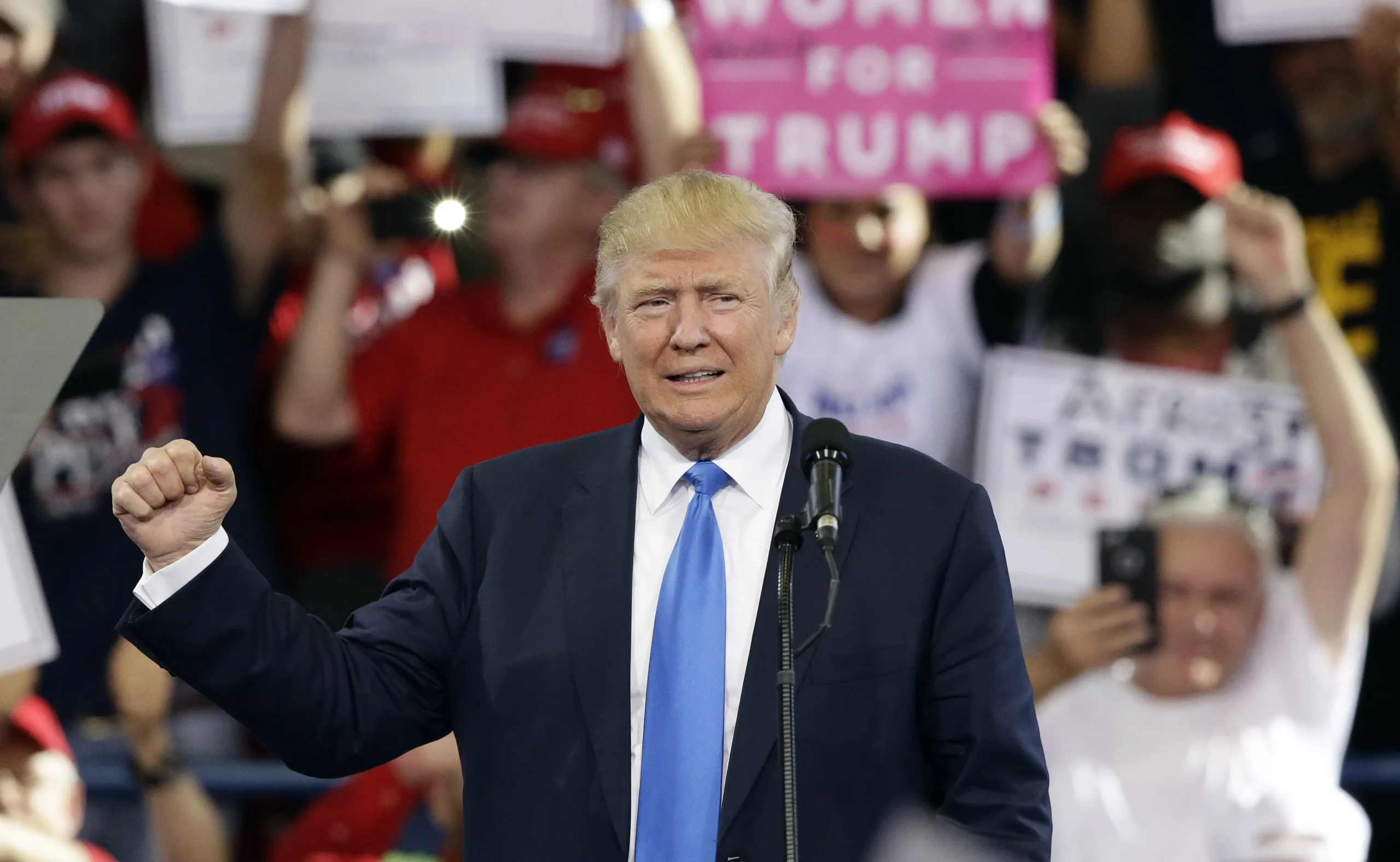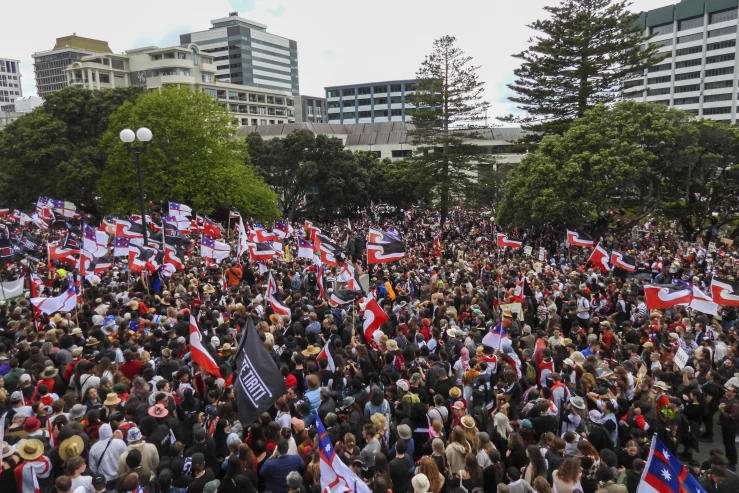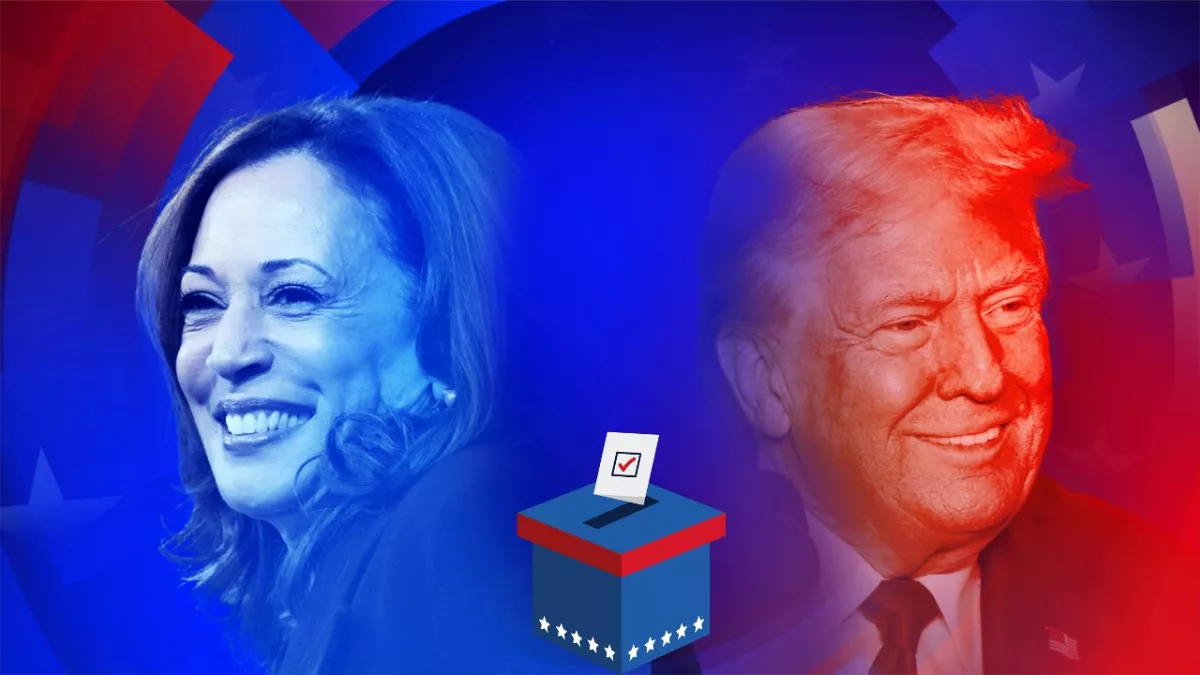Donald John Trump served as the 45th President of the United States from January 20, 2017, to January 20, 2021. A businessman, television personality, and political outsider, Trump’s presidency was marked by strong partisan division, significant policy changes, and widespread controversy. His rise to political power was unprecedented, and his tenure remains a defining period in American politics.
Early Life and Career
Donald Trump was born on June 14, 1946, in Queens, New York, to Fred and Mary Trump. His father was a successful real estate developer, which introduced Trump to the world of business at a young age. He attended the Wharton School of the University of Pennsylvania, earning a degree in economics in 1968. Trump initially worked for his father’s company, eventually taking over the business and renaming it The Trump Organization.
As a businessman, Trump expanded the family’s real estate holdings, investing in hotels, casinos, and office towers. He gained national attention for his high-profile projects, such as Trump Tower in Manhattan. His business ventures were often controversial, including bankruptcies and lawsuits, but he maintained a high public profile through his appearances on the NBC reality television show The Apprentice, which ran from 2004 to 2015. His media presence helped shape his image as a tough, successful businessman.
Presidential Campaign
In June 2015, Trump announced his candidacy for president as a Republican. His campaign began with provocative rhetoric, including a promise to build a wall along the U.S.-Mexico border to prevent illegal immigration. He also focused on issues like trade deficits, economic nationalism, and “America First” foreign policy. Trump’s blunt and often inflammatory comments, which included derogatory remarks about immigrants, political opponents, and the media, resonated with a significant portion of the American electorate, particularly working-class voters in the Rust Belt.
Trump’s political outsider status was a major part of his appeal. He promised to “drain the swamp” of corruption in Washington, D.C., and pledged to undo many of the policies implemented by his predecessor, Barack Obama. Trump’s populist rhetoric was aimed at disaffected voters who felt alienated by the political establishment.
In the 2016 Republican primaries, Trump triumphed over a crowded field of experienced politicians, including Jeb Bush, Marco Rubio, and Ted Cruz. His unorthodox approach and disregard for traditional political norms gave him an edge. He clinched the Republican nomination and went on to face Democratic nominee Hillary Clinton in the general election.
The 2016 election was one of the most contentious in U.S. history. Trump’s campaign was marked by intense media scrutiny, allegations of Russian interference, and public debates over issues such as healthcare, trade, and race relations. Trump’s victory in the Electoral College, despite losing the popular vote to Clinton, shocked many political analysts and commentators.
Presidency (2017-2021)
Trump took office on January 20, 2017, with a promise to implement sweeping changes. His administration was characterized by significant policy shifts in domestic and foreign affairs, frequent use of social media (especially Twitter), and an often combative relationship with the press.
Domestic Policy:
- Economic Policies: Trump’s administration implemented a major tax overhaul in 2017, which cut corporate tax rates and aimed to stimulate economic growth. He also prioritized deregulation, rolling back many Obama-era environmental and financial regulations.
- Immigration: One of Trump’s most controversial policies was his stance on immigration. The administration implemented a “zero-tolerance” policy that led to the separation of children from their families at the U.S.-Mexico border. Trump’s push for a border wall became a central issue during his presidency, leading to a government shutdown in 2018-2019 over funding for the wall.
- Healthcare: Trump made repeated efforts to repeal the Affordable Care Act (Obamacare). While the Republican-controlled Congress failed to pass a full repeal, Trump was able to eliminate the individual mandate through tax reform.
Foreign Policy:
- Trade: Trump adopted an “America First” approach to trade, renegotiating NAFTA (North American Free Trade Agreement) and replacing it with the United States-Mexico-Canada Agreement (USMCA). He also imposed tariffs on Chinese goods, initiating a trade war aimed at reducing the U.S. trade deficit and pressuring China to change its trade practices.
- Diplomacy: Trump’s foreign policy was marked by unpredictability. He withdrew the U.S. from the Paris Agreement on climate change and the Iran nuclear deal. He also engaged in high-profile meetings with North Korean leader Kim Jong-un, though the results of these negotiations were mixed.
Impeachment: Trump became the third U.S. president in history to be impeached by the House of Representatives. In 2019, he was impeached on charges of abuse of power and obstruction of Congress over his dealings with Ukraine. He was accused of pressuring Ukraine to investigate his political rival Joe Biden. Trump was acquitted by the Senate in early 2020.
COVID-19 Pandemic: The COVID-19 pandemic, which began in early 2020, was one of the defining events of Trump’s presidency. His administration’s handling of the crisis was heavily criticized, with many arguing that his downplaying of the virus, mixed messaging, and lack of coordinated federal response exacerbated the public health crisis. Trump pushed for rapid vaccine development through Operation Warp Speed, which resulted in the creation of COVID-19 vaccines in record time.
Racial Tensions and Protests: Trump’s presidency saw a resurgence of racial tensions in the U.S. The killing of George Floyd in May 2020 sparked nationwide protests and a larger conversation about police brutality and systemic racism. Trump’s response to the protests was often controversial, as he called for law and order and deployed federal agents to respond to protests in cities like Portland, Oregon.
2020 Election and Post-Presidency
In 2020, Trump ran for re-election against former Vice President Joe Biden. The election was held during the COVID-19 pandemic, with a record number of mail-in ballots. Trump and his supporters alleged widespread voter fraud, despite a lack of evidence to support these claims. Biden ultimately won the election with 306 electoral votes to Trump’s 232.
Trump refused to concede, and his claims of election fraud culminated in the January 6, 2021, attack on the U.S. Capitol by his supporters. The riot, aimed at overturning the election results, led to the deaths of several people and was widely condemned. Following the Capitol insurrection, Trump was impeached for a second time on charges of incitement of insurrection. He was acquitted by the Senate once again.
Legacy and Impact
Trump’s presidency left a lasting impact on American politics. His populist rhetoric reshaped the Republican Party, making it more aligned with his personal brand of nationalism and skepticism of globalism. His policies, particularly on immigration, trade, and the economy, were polarizing, with strong support from his base but significant opposition from Democrats and some moderates.
Trump’s use of social media, especially Twitter, revolutionized the way politicians communicate with the public. However, his frequent attacks on the media and political opponents, as well as his inflammatory rhetoric, deepened divisions in the country.
His administration’s handling of the COVID-19 pandemic and its controversial approach to racial justice and climate change remain key areas of debate.
As of now, Trump continues to exert influence over American politics. His post-presidency period has been marked by continued political activity, including hints at running for president again in 2024.




